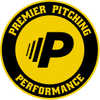No Products in the Cart
Table of contents
No headings found in this article.
To pitch and throw effectively, your arm must move overhead easily and painlessly. It requires sufficient mobility patterns throughout the entire body along with the ability to move through those end ranges of motion quickly. Mobility is a crucial component of your baseball performance. However, a lot of players can get confused by the term “mobility” because they’re often using it interchangeably with flexibility.
Baseball players, in particular, need to understand the key differences between mobility and flexibility in order to train more effectively. Let our experienced team at Premier Pitching Performance teach you about this important topic and how it can improve your throwing ability. This informative guide will explain the major components of mobility vs. flexibility, plus exercises that will enhance your athletic performance.
>> Ready to begin your training? We have all the necessary equipment in our shop. Browse our selection of weighted baseballs, plyo balls and more.
Understanding Mobility vs. Flexibility
There's a reason why trainers say that regularly stretching will make you more flexible. Flexibility refers to how much your body's soft tissue can stretch. When fitness experts mention flexibility, it usually pertains to the following:
-
Muscles
-
Tendons
-
Ligaments
-
Nerves
Mobility, on the other hand, deals with your joints. It refers to the joint's ability to carry out a full range of motion. While the two are related, being flexible doesn't always mean you'll have excellent mobility.
Your joints need to be strong and stable to achieve full mobility. It may not matter how flexible the muscle tissue is if you lose mobility. For example, an athlete with a dislocated shoulder may retain their flexibility but the injury greatly reduces their shoulder mobility.
Why Mobility Matters in Baseball
Our joints need a certain level of mobility for everyday movements. Baseball pitchers, especially, must have excellent shoulder and hip mobility. This helps them achieve a more powerful delivery and avoid injury.
Some athletes gloss over their mobility and corrective exercises, not understanding the impact it can have on their performance. They make the mistake of focusing only on their upper body muscles and think this will strengthen their range of motion. Athletes more susceptible to injury by failing to improve their hip mobility. Studies show that pitchers with sufficient hip mobility can reduce their chance of shoulder and elbow injuries by up to 20%.
It's not just pitchers that need to focus on mobility. All players can benefit more from improved mobility. For example, catchers must have proper ankle mobility to quickly transition from the squatting position to their powerful throwing motion.
Exercises for Greater Mobility and Injury Prevention
When it comes to mobility, what is the proper way to train? Our coaches recommend incorporating mobility exercises into your daily routine as a part of your pre-throw routine. It's also important to remember to work in recovery days/ low workload days.
- Soft Tissue Work: Using a foam roller or therapy ball, massage your muscles to loosen connective tissues and increase blood flow.
- Static Stretching: Dynamic and static ground stretching will help you increase range of motion. We recommend the 90-90 position, camel cat, thoracic open books and folders.
- Dynamic Warm Up: Continue increasing blood flow to your muscles through more dynamic stretching and warm up exercises. These exercises can include the J-band routine, tricep extensions, flys, split stance counter and rotation.
- Hip Circles: Down on all fours, cycle your knee in as large of a circle as possible to improve your hip range of motion and mobility.
- Thoracic Rotation: Lying on your side, cross your top leg over with your knee at 90 degrees. Drop your shoulder to the ground as you exhale for 5 seconds.
>> Download PPP’s FREE Plyo Ball Drill Card for movement pattern preparation.
Enhance Your Pitching Ability
Now that you understand the main components of mobility and how it can benefit your game, it’s time to implement it into your training. Executing the right exercises to strengthen your shoulder and hip mobility will make a huge difference in your kinematic sequencing and force output. Let Premier Pitching Performance set you on the right path forward with our elite training programs for frontline baseball players.
Our coaches know the proper techniques to make you more flexible. With our help, you can take your pitching performance to the next level. Contact us today to schedule a biomechanical assessment with our team so that we can assess your mobility and movement mechanics.








